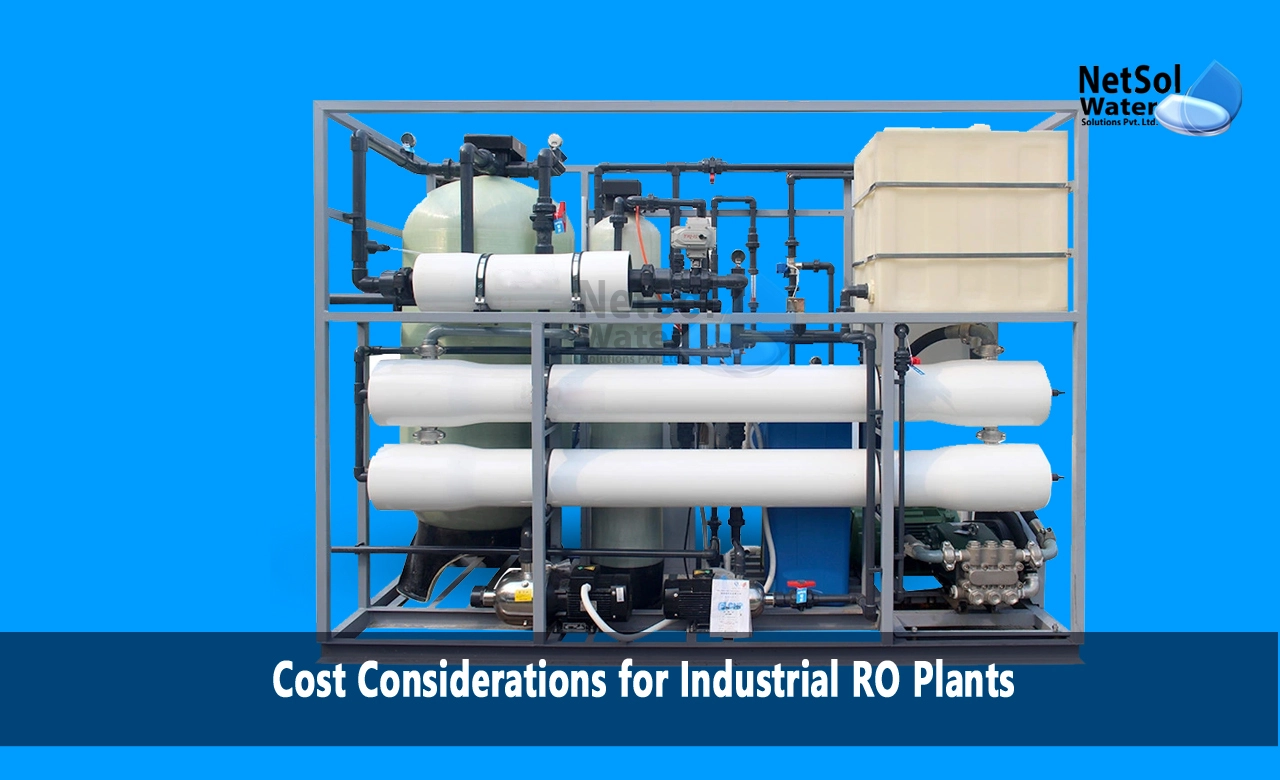How to Consider the Cost of Industrial RO Plants?
Reverse osmosis (RO) has become the go-to water purification technology for industries requiring a consistently high-quality supply. However, proper evaluation of the total costs associated with an industrial RO plant is critical. While the upfront capital expenditure for RO system implementation can seem steep, accounting for the full lifecycle expenses reveals RO's excellent overall value proposition. Strategic planners must consider all factors - from upfront capital to operating costs, membrane replacements, pretreatment, concentrate management, and more - to optimise industrial RO affordability.
Capital Costs
The core RO plant hardware - membranes, pressure vessels, pumps, piping, and instrumentation - comprise the bulk of capital costs. But other components like multimedia filters, chemical dosing systems, storage tanks, control panels, and civil works for installation factor in too. System redundancy for reliability along with future expansion capacity uplift initial pricing. Capital costs rise with factors like higher rejection requirements, difficult feed water conditions, or production volume scaling. However, standardised RO skid packages minimise expenses for smaller industrial needs.
Pretreatment Expenditures
Effective pretreatment is vital for safeguarding RO membranes from fouling, scaling, or degradation. This extends their service life and maintains system productivity. As such, pretreatment represents an ongoing operational expense for consumables and maintenance. Conventional pretreatment utilises multimedia filters, chlorination/dechlorination, antiscalant dosing, acid/antiscalant injection, and cartridge filters. More advanced pretreatment designs leverage membrane filtration, ion exchange or electrical processes if the feed contains extreme contaminants. Higher-quality pretreatment reduces cleaning frequency but increases capital/operating costs.
Membrane Replacement Costs
RO membranes have finite lifetimes determined by factors like operating conditions, feed water quality, and pretreatment effectiveness. Most last 5-7 years, depending on hourly/daily use. Periodic membrane replacement represents a major recurring expense for industrial RO plants, offsetting RO's low chemical and energy operating costs. Automated operation monitoring of key indicators like differential pressure, flow, and conductivity, as well as frequent membrane integrity testing,optimises replacement intervals. Standardising membrane types across an industrial facility reduces inventory stocking costs. Membrane suppliers provide service contracts with performance guarantees that lock membrane pricing for predictable budgeting.
Concentrate Management
Disposing of the concentrated reject stream from RO systems incurs meaningful costs. Factors include sewer discharge fees, hauling expenses for non-severable waste, or capital/operating costs for implementing zero liquid discharge (ZLD) systems that recover additional water from the concentrate. Environmental regulations restricting effluent contents drive concentrate management expenses. Minimising RO system recovery rates lowers disposal volumes but increases pretreatment and membrane replacement frequency. Site modellingoptimises recovery balancing costs across all variables.
Energy Consumption Costs
RO systems inherently have low thermal energy demands compared to processes like distillation. However, their electric energy use for high-pressure pumping can significantly impact operating costs for industrial facilities with large purified water needs. Pumping electricity comprises over 30% of water costs from a typical RO installation. Investing in energy recovery devices (ERDs) that recapture and reuse residual reject pressure reduces the pumping power required. Newer isobaric designs maintain constant low pressures, further enhancing RO energy efficiency. For large industrial RO plants, even small energy optimisations provide substantial operational savings.
Maintenance Expenses
While fully automated, RO systems require routine maintenance, monitoring, and service, representing an operational expense line item. Labour costs cover re-piping/reconnecting equipment during membrane replacements, cleaning and sanitising activities, and general system inspections. Industrial plants also need to repair inventory and have service agreements with RO system providers. Additionally, replacing pumps, valves, instrumentation, or other components periodically factors into lifecycle maintenance budgets.
Netsol Water's RO Cost Optimization Support
With over 20 years of experience delivering industrial RO solutions worldwide, Netsol Water helps customers accurately scope all cost considerations - from initial capital planning through maintenance forecasting. Our team controls proprietary process models simulating myriad influencing variables to optimise system design and operating parameters that minimisethe total costs of ownership. In-house engineering ensures cost-effective standardisation with examined, reliable components rated for harsh industrial conditions. Netsol Water even offers performance-based membrane pricing options, fixing costs for predictable financial planning. Ultimately, our expertise across the technology, application, and business dimensions of industrial RO systems empowers clients to make fully informed implementation decisions.
Conclusion
While industrial RO purification provides unmatched performance and quality benefits, projects must still logically manage expenses across all lifecycle phases. Capital expenditures for membranes, pretreatment, pumps, and supporting equipment represent just one aspect of RO affordability. Modelling operating costs for consumables, energy, concentrate disposal, maintenance, and periodic re-capitalization is equally crucial. Fortunately, opportunities to optimise designs through value engineering tend to increase dramatically as the system scale grows to meet larger industrial demands. With experienced solution providers like Netsol Water, manufacturers can confidently navigate the extensive cost considerations and capitalise on RO's compelling economic advantages.
Netsol Water is Greater Noida-based leading water & wastewater treatment plant manufacturer. We are industry's most demanding company based on client review and work quality. We are known as best commercial RO plant manufacturers, industrial RO plant manufacturer, sewage treatment plant manufacturer, Water Softener Plant Manufacturers and effluent treatment plant manufacturers. Apart from this 24x7 customer support is our USP. Call on +91-9650608473, or write us at enquiry@netsolwater.com for any support, inquiry or product-purchase related query.



